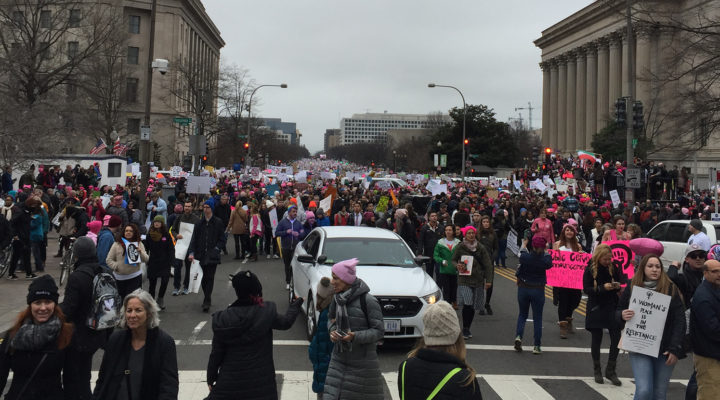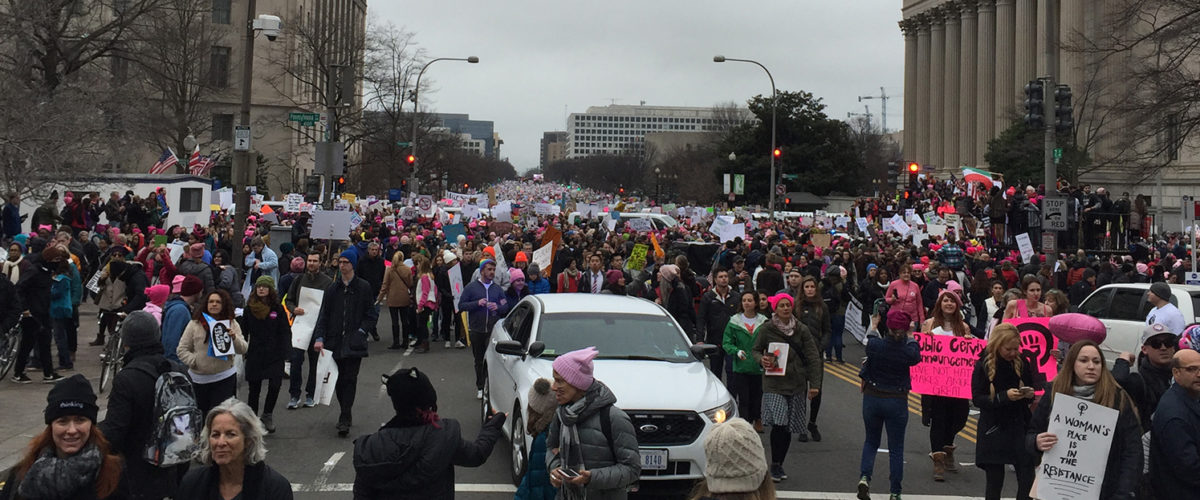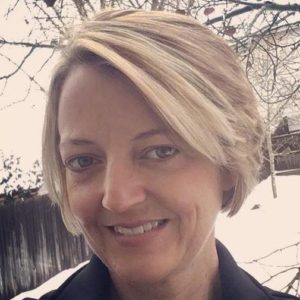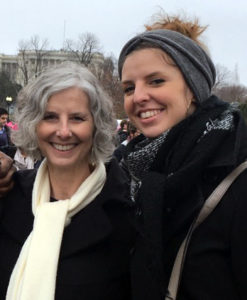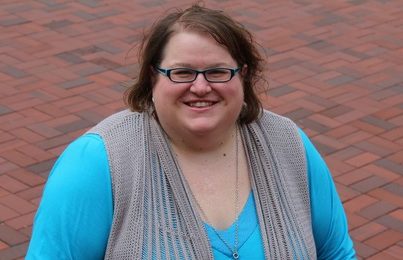Tens of thousands participated in women’s marches in Washington D.C. and around the nation over the weekend. Social media alone testifies that tens of thousands returned emboldened and inspired the experience.
“The women’s marches were a phenomenal success and an important cultural moment,” New York Times columnist David Brooks wrote Tuesday. “Most everybody came back uplifted and empowered.”
Baptist women, many of them clergy, were no less spiritually and socially impacted by their participation in the Saturday events.
Some of them agreed to share with Baptist News Global readers how the marches transformed and energized them. Several were invited to explain in writing how their faith motivated their decisions to march, how difficult it is to participate in such events without offending fellow believers who disagree, and whether their involvement put them in a tight spot with fellow Baptists.
Here are what some of them had to say.
Brenda J. Goodman, Baptist minister and chaplain at Sky Ridge Medical Center, in Lone Tree, Colo., marched in Denver.
The compelling drive to march is multi-layered, and my faith is assuredly the foundation for it. As an American Baptist, freedom is an integral piece of why I walked with my sisters and brothers … I marched for women, for the LGBTQ community, for Muslims, immigrants, the poor; for Black lives; I marched for my children, to be the light of kindness in the face of bullying…. Speaking from my own faith, I cannot think of anything more Christlike than to voice specifically who we march for, because it reflects the way Jesus reached out to specific people and communities, even as he loved all people.
The march, I believe, was the impetus to this ongoing need to have conversations across difference, for we stood together bonded as human beings from so many walks of life, experience, and thought and we can carry that spirit into conversations with those who disagree.
As a hospital chaplain, I am perhaps not as much at risk in that my ministry of presence with others in the context of my chaplaincy role is often a short-term and private encounter focused solely on presence without agenda, and to meet people where they are. Yet, being an ordained pastor means my ministry moves beyond the walls of the hospital and that I am responsible for how I represent. There is always a risk to take positions publicly and to speak out when injustice threatens our humanity, our democracy and the lives of others. But, as a person of Baptist faith, I find it my duty to engage in servant leadership, and to reflect the Baptist passion for justice. Prophetic movement cannot happen without risk. Complacency knows no courage.
Lindsay Bergstrom, the director of creative services for BNG and member of Hendricks Avenue Baptist Church, marched in Washington.
I have never participated in a demonstration of any kind before Saturday. But the divisiveness and the hatred spawned as a result of this election has been of great concern to me. So when my daughter said she was thinking of going to Washington to join the march, I realized what a wonderful opportunity it would be for us to actually DO something instead of talking about it, and do it together … And my faith had everything to do with it. I marched out of love, not hate. Love for her, love for all those who could be negatively impacted as a result of decisions made by our new leaders, love for our country and love for our planet and the God-given responsibility to be good stewards of it.
I’m not sure you can ever do anything in church without offending someone, and I know of leaders who have made great sacrifices to do what they felt was right. But speaking up for the marginalized and persecuted is exactly what Christ taught us with his life. So I believe, in a certain sense, that church leaders have a responsibility to do that too. Those things that affect the entire congregation are one thing, and a leader must do the work in trying to get as many as possible on the same page. But they are also people with opinions and passions, and they should be allowed the freedom to express that in their personal lives. I think the key is communication.
For me, I don’t think there was much risk in my participation in the march. My job won’t be negatively affected, and I don’t feel my church life will be negatively affected either. Both have a climate of acceptance of diversity, so even if they don’t agree with me, I don’t think they will condemn me. My private life, however, may be affected when friends who hold different beliefs won’t understand why I marched and judge me accordingly. I have already had dialog with one friend who was upset with me, and I’m sure there are many others who are wondering about me and just won’t engage me about it. But I have come to the conclusion that if our differing opinions changes the way they feel about me, then maybe there wasn’t enough love there for a true friendship anyway.
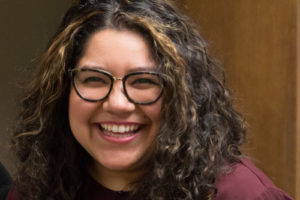 Alyssa A. Aldape, associate pastor for young adult and youth ministries at First Baptist Church of the City of Washington, DC, marched in Washington.
Alyssa A. Aldape, associate pastor for young adult and youth ministries at First Baptist Church of the City of Washington, DC, marched in Washington.
Throughout his campaign and in his cabinet nominations, President Trump has ostracized and excluded multiple communities on the margins. Jesus’ ministry was to the people on the margins and in fact reminds the mainstream that the Kingdom of God belongs to the poor, weak and hungry.
I marched for two reasons. As a minister of the gospel, I am compelled to stand for those on the margins —for the immigrant, for the woman, for the bullied, for the person of color, for the person of my faith/other faith/no faith … The second reason is that I hope other ministers in my Baptist community feel compelled to speak up as well. I am reminded of these words from Rev. Martin Luther King Jr.: “In the End, we will remember not the words of our enemies, but the silence of our friends.”
Will people of faith remain silent when the lives of immigrants, Muslims, the LGBTQ, and those without healthcare are threatened or will they see the image of God in their fellow human and be a voice for the voiceless? If we truly believe all lives matter, then we ought to be willing to honor the divine in all lives.
I have marched in several marches here in D.C., Atlanta, Ga., and Birmingham, Ala. They varied in cause — immigrant rights, death penalty reform and with Repairing the Breach.
While I recognize that not every church member in a congregation will agree on an issue, what we can agree on is that Jesus’ message to us is to love our neighbor despite the color of skin or despite their faith, so I would hope that message of love resonates with church folk.
Jennifer Lyon, Cooperative Baptist field personnel and pastor of congregational leadership at Park Avenue Baptist Church in Atlanta, marched in Atlanta.
My faith informs every aspect of my life, so it did play a role in my decision to march. I believe with all of who I am that Jesus is on the side of justice for those considered less than, treated unfairly, and over looked. Women all over the world face injustice, from unfair wages to sexual violence. As a human, much less a person of faith and pastor, I am convinced that standing up for the rights of women is non-negotiable. We find ourselves at a moment in history when this is critical not only in our own country but around the world, so I am compelled to act, not just march in a one-time event.
The congregation that I serve is progressive but not monolithic, so people have varying opinions and points of view. What we share in common is a love and respect for one another that comes from creating a culture that speaks of hard topics openly. Honestly, I haven’t had a church member share that they were offended by my marching, many of my church members were marching alongside me in Atlanta or in other cities. I am transparent as to why I marched. I was not marching against anyone or anything- I marched FOR people and values that are part of who I am. Did that mean that I agreed with every one of the 60k people that marched with me in Atlanta? Probably not. When questioned by an offended parishioner, family member, or stranger, I would share why it mattered to me, and invite them into conversation about what was offending them.

